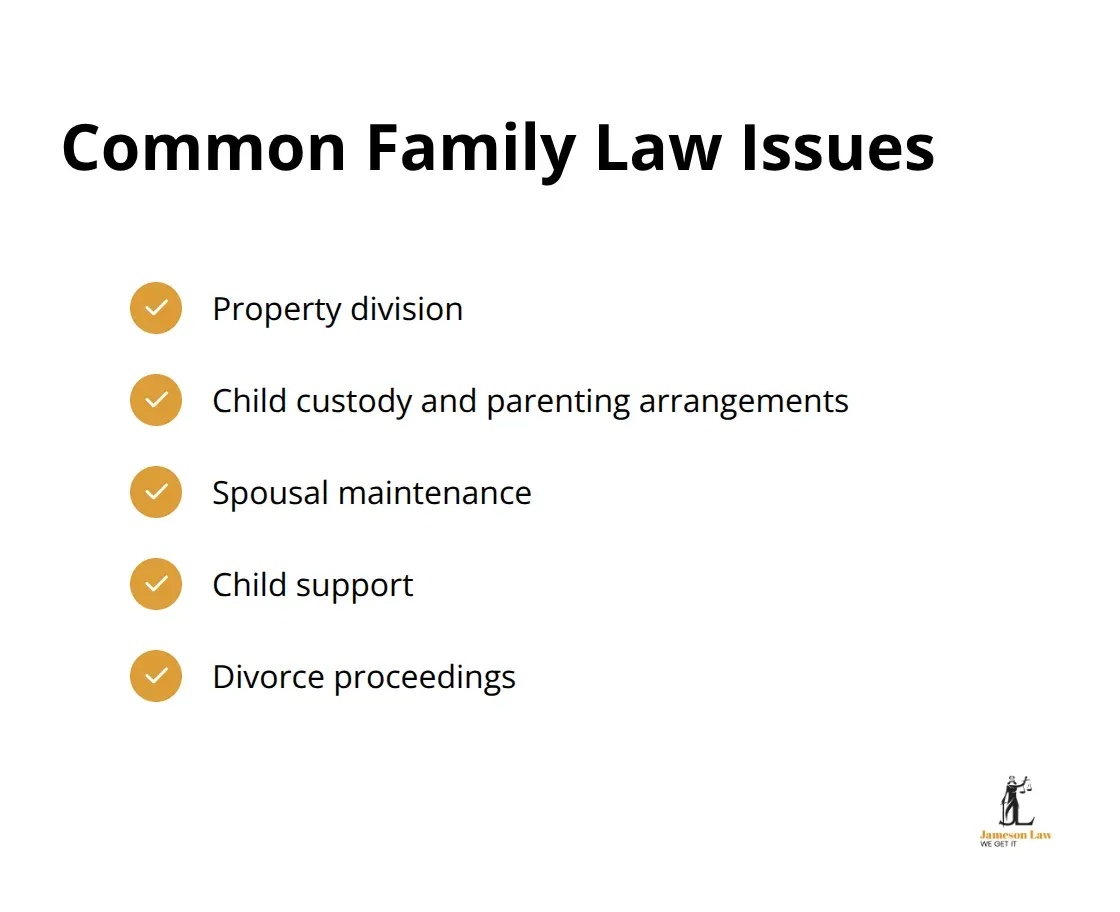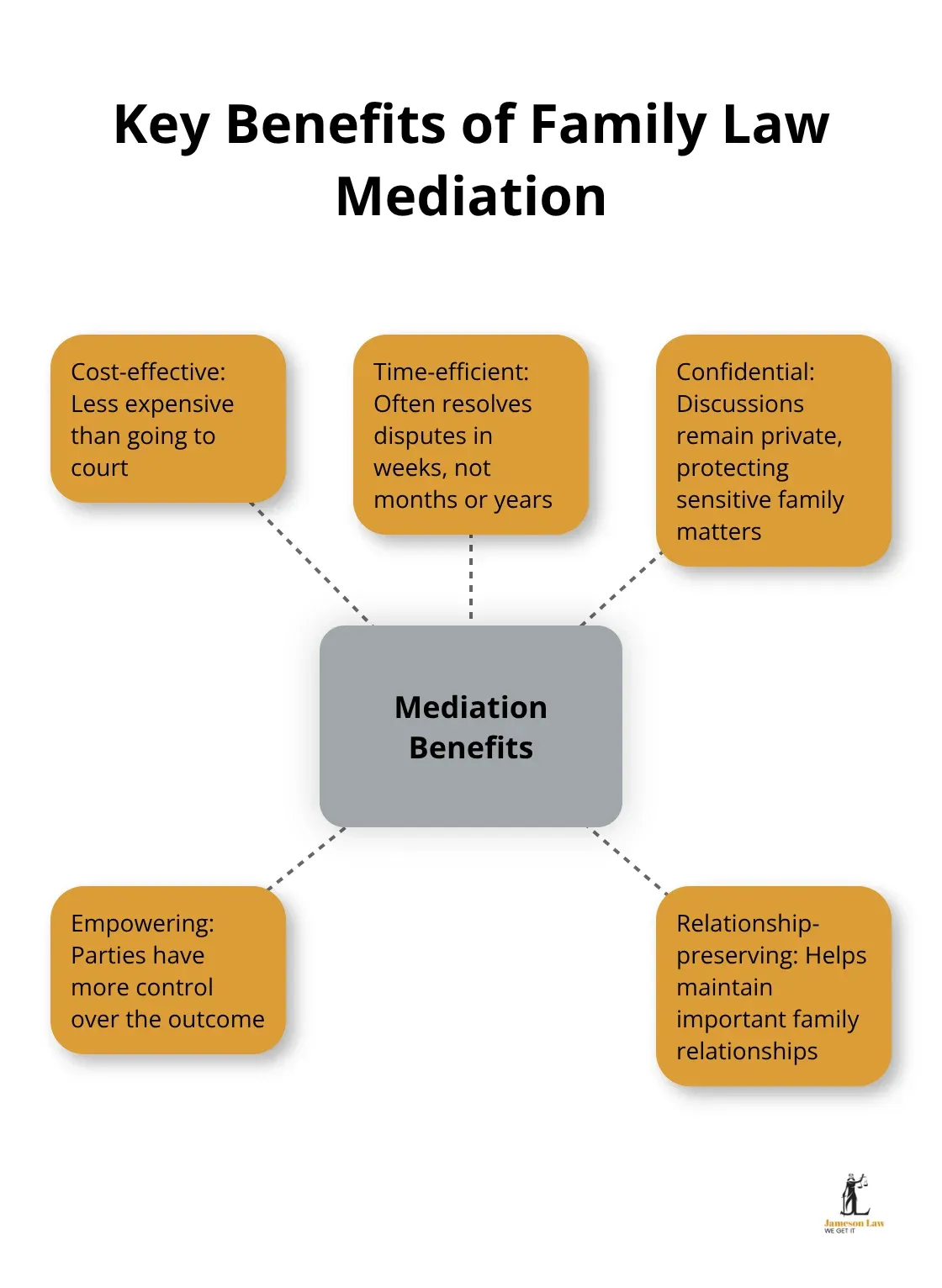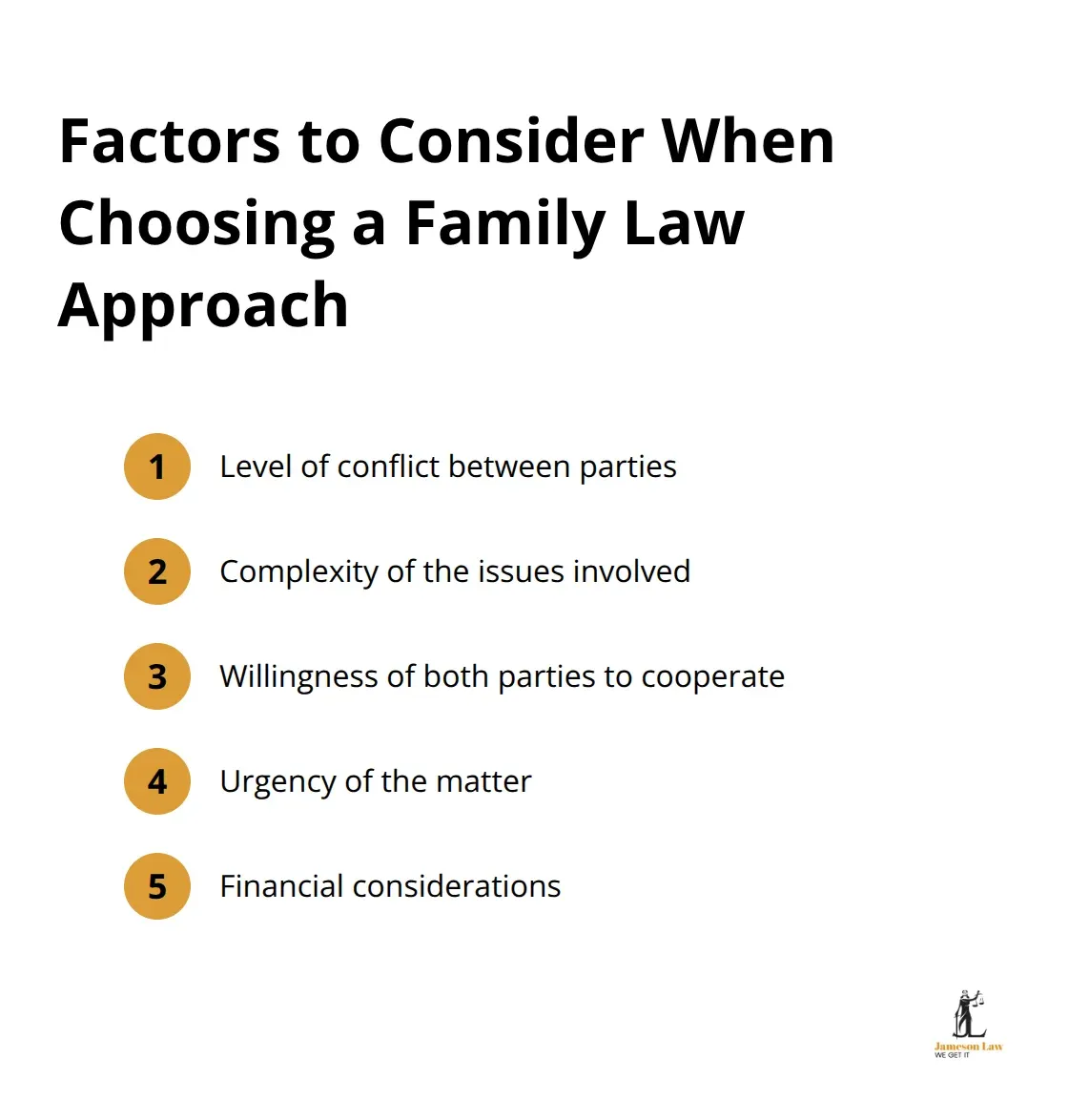Family law resolutions can be complex and emotionally charged. Navigating these challenges calls for a careful balance of legal expertise and compassion.
At Jameson Law, we focus on practical, amicable solutions to family disputes in Sydney. This guide outlines effective strategies to help you reach fair and lasting outcomes, with clear steps and resources for New South Wales.
What Are Family Law Resolutions?
Defining Family Law Resolutions
Family law resolutions are agreements or decisions that settle disputes arising from separation, divorce or other family issues. These can be reached by mediation, negotiated consent orders, collaborative law, arbitration or, when required, court determinations via the Federal Circuit and Family Court of Australia.
Common Family Law Issues
Frequently encountered matters include:

- Property division including superannuation
- Parenting arrangements and parenting orders
- Spousal maintenance and child support
- Divorce applications and separation planning
- ADVOs and domestic violence protection
The Importance of Amicable Resolutions
Reaching an agreement cooperatively can reduce stress and legal spend, and is often better for children. Explore practical tools at Family Relationships Online and Relationships Australia NSW. Our Sydney team can convert agreements into binding consent orders filed with the FCFCOA.
Effective Strategies for Reaching Resolutions
- Open communication: Clarify priorities and non-negotiables. Use a simple prep list: documents and timelines.
- Interests over positions: Identify underlying needs to unlock creative options.
- Neutral third parties: Work with mediators or FDR services (court FDR info).
- Scenario testing: Consider parenting logistics, budgets and tax. Try Moneysmart’s budget planner.
- Sound legal drafting: Ensure agreements are enforceable. See our plain-English family law 101 guide.
The Role of Professional Guidance
Professional advice keeps talks constructive and outcomes enforceable. We explain rights and obligations, negotiate on your behalf and draft the paperwork the Court expects. Check independent guidance on legal costs and LawAccess NSW.
One of the most effective pathways is mediation, outlined below.
Mediation: A Path to Peaceful Family Law Resolutions
Mediation offers a confidential, time-efficient alternative to litigation. We regularly see entrenched disputes shift when parties feel heard and have workable options on the table.
The Mediation Process Explained
After a private intake, the mediator sets ground rules and each party explains their perspective. The mediator then helps explore options and reality-test proposals. Learn what to expect from court-endorsed FDR information.
Where parenting is in issue, resources at Family Relationships Online – Find a service can help you prepare.
Key Benefits of Family Law Mediation

- Cost-effective: Less time in court means lower fees. See LSJ’s overview on mediation.
- Faster: Weeks rather than many months common in litigation.
- Confidential: Discussions are private, preserving dignity.
- Empowering: You shape outcomes instead of a judge imposing orders.
- Relationship-preserving: Collaboration supports ongoing co-parenting.
Beyond Mediation: Other ADR Methods
- Collaborative law: Team approach to settle without court. Ask us about suitability.
- Arbitration: Binding decision by an accredited arbitrator for financial matters.
- FDR for parenting: Often required before filing parenting applications; see parenting orders.
Preparing for Successful Mediation
- Bring key records: finances, valuations, school or care info.
- Set priorities and fallback options; keep children’s best interests central.
- Stay open-minded and solution-focused.
- Get tailored advice before you sign; we can convert terms to consent orders.
Mastering Legal Strategies in Family Law
Different matters call for different tools. We combine negotiation, collaborative practices and, where necessary, litigation in the case management pathway to reach durable outcomes.
Negotiation: The Art of Compromise
Negotiation is the backbone of resolution. We use interest-based techniques, informed by your evidence and disclosures, to build options that meet legal standards and practical needs.
Collaborative Law: A Team Approach
Where both parties commit to settling out of court, collaborative practice can be effective, drawing in financial advisers or child consultants as needed. It keeps focus on problem-solving rather than point-scoring.
Litigation: When Court Becomes Necessary
If safety, urgency or intractable dispute prevents settlement, we run a clear court strategy while continuing to explore sensible agreements. Read our overview of mediation, consent orders and property proceedings to understand your options at each step.
Choosing the Right Approach
Consider conflict level, complexity, cooperation, urgency and budget when selecting a pathway:

Independent help is available from LawAccess NSW, and you can check Accredited Specialists through the Law Society. For tailored advice and representation, speak with our Sydney family law team.
Final Thoughts
Family law resolutions work best when they combine compassion with clear legal structure. Whether you resolve matters by mediation, negotiation, collaborative practice or court orders, the aim is a durable outcome that protects your family’s future.
For practical, outcome-focused help in Sydney, contact Jameson Law on (02) 8806 0866 or via our contact page. We will guide you from first conversation through to final orders with clear steps, transparent costs and a steady hand.













